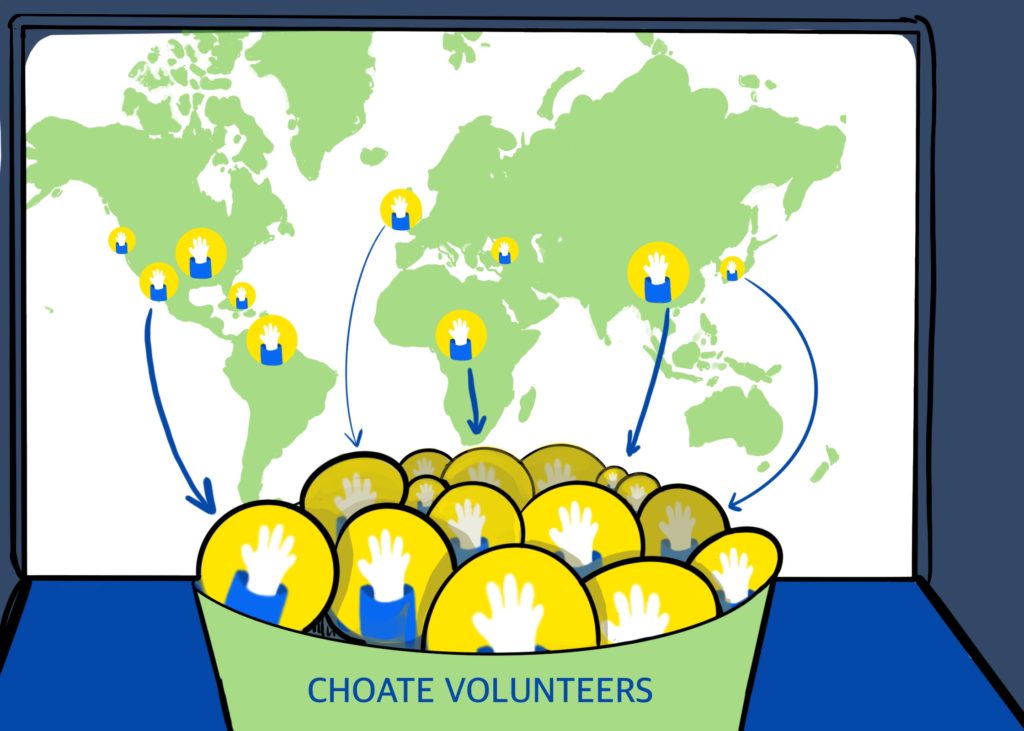Covid-19 and the resulting social-distancing limitations have drastically changed the face of volunteering. Although some projects have shifted online, others are simply no longer possible. Eventually, some community service programs will likely revert to pre-pandemic operations, but many virtual community service opportunities appear to be here for the long run.
“Before the pandemic, you had the option of either doing online or in-person volunteering, but now the other half has been cut out,” said Claire Fu ’22, who has used the pandemic as an opportunity to further her online tutoring. Before the pandemic, she had been teaching English to a student from rural China virtually. “It’s a very rewarding experience because, as a tutor, I learn a lot about the lifestyles of people who are very different from me,” Fu said.
Berk Gokmen ’21, the president of the Community Service Club, acknowledged the increase in traditional online volunteering while also recognizing the pandemic as a chance to invent new ways of helping others. Those looking for ways to give back, Gokmen explained, might consider finding creative ways to shift in-person projects online.
For instance, Michael Korvyakov ’23 has recently started an online chess tutoring organization, NYC Chess Connections, where, he explained, “Tutors and students sign up, and the tutors teach the students over Zoom once a week for an hour.” (Korvyakov’s group maintains a website at nycchessconnections.org.)
Still, the truth is that Choate-sponsored volunteer opportunities, most of which are typically held in-person, have become scarce. “I didn’t see much through school, so I’m trying to come up with my own project,” said Rajeev Roy ’23.
Given the new online community service environment, individual, non-Choate projects might be the best way to earn hours. Community Service Director Ms. Melissa Koomson said, “There has been an uptick in proposal submissions, as you need them for non-Choate sponsored activities.”
Although it’s now more difficult for the School to offer volunteering projects, Choate is still encouraging community service efforts. “In the last week of fall term, the Community Service Club organized a panel in which we explained our projects and what we do, and we also encouraged others to make their own proposals,” said Gokmen.
Amidst the new challenges, Ms. Koomson has pushed students to reconsider how to most effectively support communities in need. “Community service has adapted to what people’s needs are during this time. The digital divide, in particular, is really taxing for vulnerable populations given access to technology, which is something folks might take for granted,” said Ms. Koomson.
Organizations that focus on closing the digital divide, like the national nonprofit Connected Nation, have been working even harder to provide technology and WiFi to communities without internet access. Given that basic aspects of life like school and work have now gone virtual, their work is especially paramount right now.
Within the School, however, “All Choate students have access to devices, and the school has made a commitment to help those with internet connectivity challenges,” explained Ms. Koomson. As such, maintaining a 10-hour requirement for all students is reasonable despite the fact that most community service is now virtual. Furthermore, there are still some pandemic-safe volunteering opportunities such as “making and delivering cookies to food pantries, sewing masks for vulnerable populations, [and] writing letters and cards of thanks and encouragement to essential workers” that are not strictly online, Ms. Koomson said.
However, Ms. Koomson believes that even after the pandemic, online options for community service will continue in addition to in-person offerings. “The way I see it, there will be more virtual opportunities available, but the food banks, for example, will always need that physical labor,” said Ms. Koomson. She also acknowledged the unique benefits of virtual community service, such as allowing for a diverse set of volunteers to foster connections in a global community.
Both Fu and Korvyakov also mentioned how online community service connects people from all around the globe, allowing both tutors and students to better understand each others’ ways of life.
“With online volunteering, you can meet someone on the other side of the world, with a different culture than you,” Fu said. “That type of volunteering is very special.”

Graphic by Rose Shen/The Choate News




